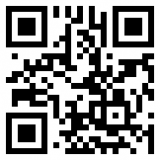Linked List : Three FOSS tools to work with JSON
If you are a web developer or an API developer, you would have used JSON daily unless you are deeply buried in the XML world. There are some tools that I use to work with them daily. These tools are useful if you are a developer or a tester or just a curious mind who likes to explore the web or config files.
jq
jq is a lightweight and flexible command-line JSON processor.
jq is like sed for JSON data – you can use it to slice and filter and map and transform structured data with the same ease that sed, awk, grep and friends let you play with text.
jq
This is my Swiss army knife for dealing with JSON. I use it almost everyday. It’s a CLI tool. You can try it online before downloading.
JSON Editor
JSON Editor is a web-based tool to view, edit, format, and validate JSON. It has various modes such as a tree editor, a code editor, and a plain text editor.
JSON Editor – Github
It’s a web tool that you can use online or download run locally. I love it because it gives you the ability to edit the JSON in flat view or tree view. It also has features to open the JSON directly from the web or POST the edited document to the HTTP endpoint. It can also compress the JSON, Validate with JSON Schema, etc.
JSON Diff
JSON Diff expands on the amazing work by the guys at jsonlint.com and provides a semantic compare tool for JSON documents.
I often work with large documents and it’s difficult to see the differences between them. Normal text compare tools work well for finding the differences in JavaScript code, but JSON data can have many differences in the text that don’t actually change the data.
JSON Diff sorts, formats, and compares two JSON documents to find the actual semantic differences instead of just the text ones.
JSON Diff on Gihub
It’s a simple tool that gives you the difference between to JSON files in a visual way, online. You can also download and run locally if you prefer that.
Note: Do remember not to use sensitive data with JSON Editor and JSON Diff online tools or any online tools. I have not seen them doing anything wrong. But it’s a good practice. Even when you are running them locally, be watchful, as these tools run as web-servers locally. There are chances that data might get leaked.












2 Responses
[…] can combine with jq to filter JSON and manipulate the results for your […]
[…] https://thejeshgn.com/2021/03/25/linked-list-three-foss-tools-to-work-with-json […]